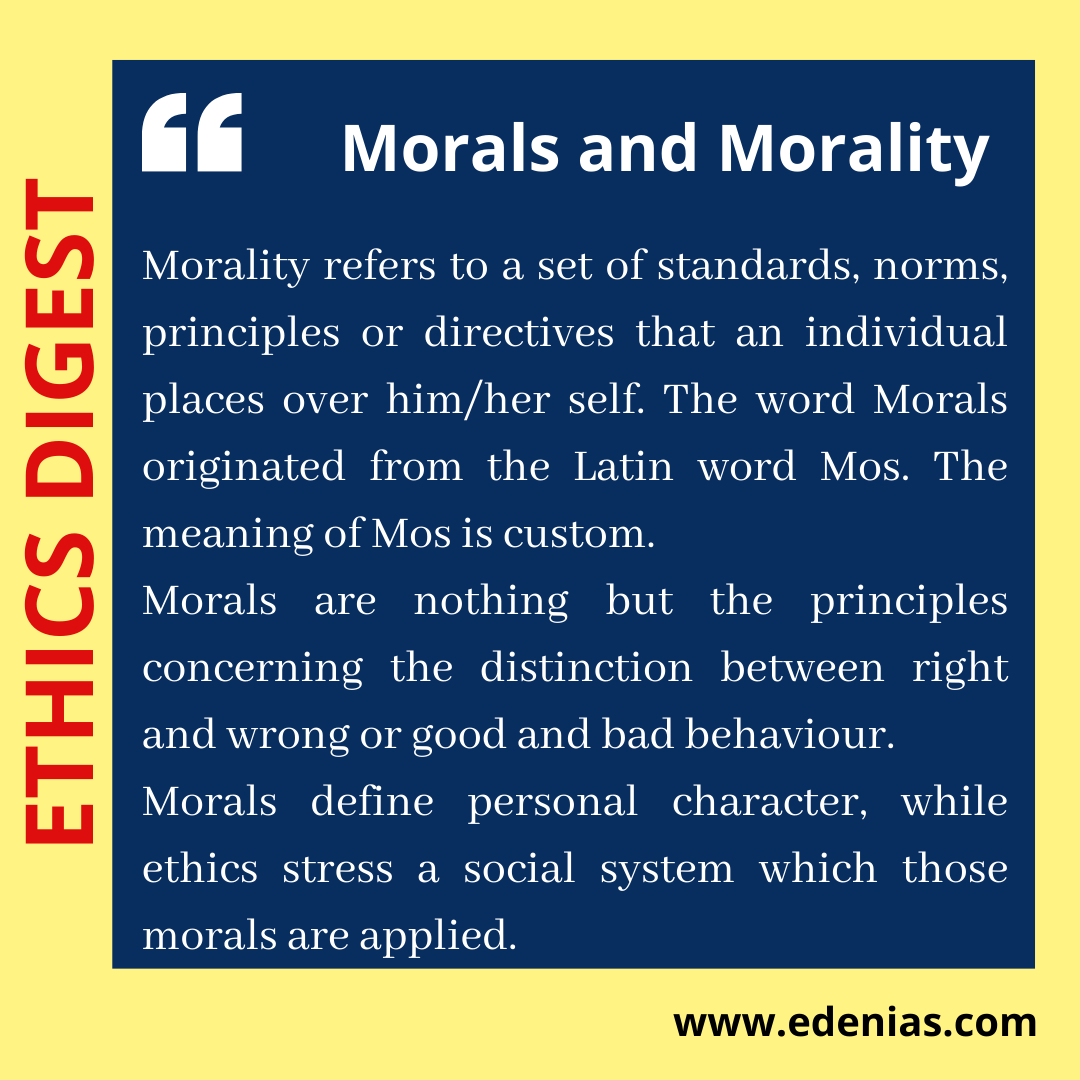The concept of Ethics Integrity and Aptitude generally is about what you can or shouldn’t do. When you say something is “unethical” generally means that it’s seen as something you should not do. “Ethics” is in a more or less strict sense However, more details are provided.
Ethics and morality as a unit
Ethics are often in some way related to “morality” and “morals” In fact, that’s what I was taught in my studies of ethics in the field of philosophy. Morality/ethics is about the issues of right and wrong that are viewed as “objectively accurate” (not contingent on particular convention).
There are many instances when we hear the expression “right or wrong” in order to clarify the right way to behave in accordance with rules and regulations in the game,
in accordance laws, or according to the etiquette. For instance, you can declare that when you eat at a specific location, you’re doing things the right way if you don’t make a loud noise. But it is an issue of etiquette.
This implies you are not necessarily following the “right” behavior can be altered as you alter your cultural norms, time frame or even just the members of the group gathering.
Ethics Integrity and Aptitude issues are usually thought to be concerns of “objective” ethical and moral issues meaning that the correct and wrong remains in place and will never change.
For example, an accepted moral and ethical position is that it is unjust to kill someone without motive, regardless of the location or culture you’re in. Also, it’s illegal for businesses to employ child labor.
In this sense, ethics/morality is about judgments concerning what is universally/objectively (always and to all people) right and wrong.
The kind of right and wrong doesn’t depend on the authority’s opinion A dictator may alter rules and regulations but not change the morality of what is ethically or morally right.
When someone says that something is morally wrong or ethically incorrect, they are affirming that it is morally and ethically wrong for everyone.
At the very minimum they are expressing that they believe it’s morally and ethically wrong regardless of whether they’re not suggesting that everyone feels the exactly the same in the same way.
This means that in the event that one person believes that the issue is one of ethics, it is possible to have opposing views.
Certain people view issues like the research on stem cells as moral questions due to religious beliefs and others who don’t believe in these principles do not consider the same ethical dilemmas (but could have different concerns).
Thus, while a claim regarding something as ethically unjust implies it is the individual who makes that this is the case, different people may have different opinions.
This is due to the fact that there are many different opinions on the ethical or moral, with some claim that only matters of fairness and not harming other people are valid and others claiming that certain aspects like adhering to the rules or customs are also moral/ethical.
(see the psychological research study in the book “Moral Fundamentals Theory” for an example)
My personal experience has been that the basis for claiming that you shouldn’t perform something due to it being illegal is typically a concern for someone else.
Therefore, ethical issues generally involve interactions between individuals (or other creatures or entities) and, in these interactions, any selfish or destructive act can cause harm to happen to another. What happens to religion ethical principles is a different matter.
The distinction between morality and ethics
In most cases “ethics” is commonly used to mean guidelines for conduct or rules, for instance, discussing “business ethical conduct”. This kind of use of ethics refers to the way in which the way people behave.
Morality is, however is more about the personal convictions about how to perform and is often more abstract.
It is possible to differentiate between the two depending on the individual, and some believe that “morality” refers to the personal beliefs as opposed to “ethics” are about practical behavior and values and are based on individual moral convictions.
In reality, this means that an individual is able to be accused of immorality or unethical, while businesses are accused of being unethical (for example, if they cheat on tax payments).
The ethics without “objective” definition
A few people are unable to grasp the distinction between etiquette and ethics, and may refer to guidelines on what one must do as “ethical guidelines” even though the principles don’t claim to be general or objective in any way. When they talk about “ethics” such a manner they should only make use of terms like “codes for behavior”, “informal rules” or “norms”.
The use of “ethics”
“Ethics” could also be a reference to the study of philosophy that studies morality and Ethics for UPSC
“Business ethical conduct” is a term that is commonly used that is often referring to common principles regarding what should be acceptable within a corporate environment and what’s not.
Every group or collection of people might be governed by a set of ethical guidelines such that you might refer to “feminist ethical principles” and “work ethic”.
Sources: Philosophy textbooks Psychology research on descriptive ethics having conducted psychological research on morality and norms.

